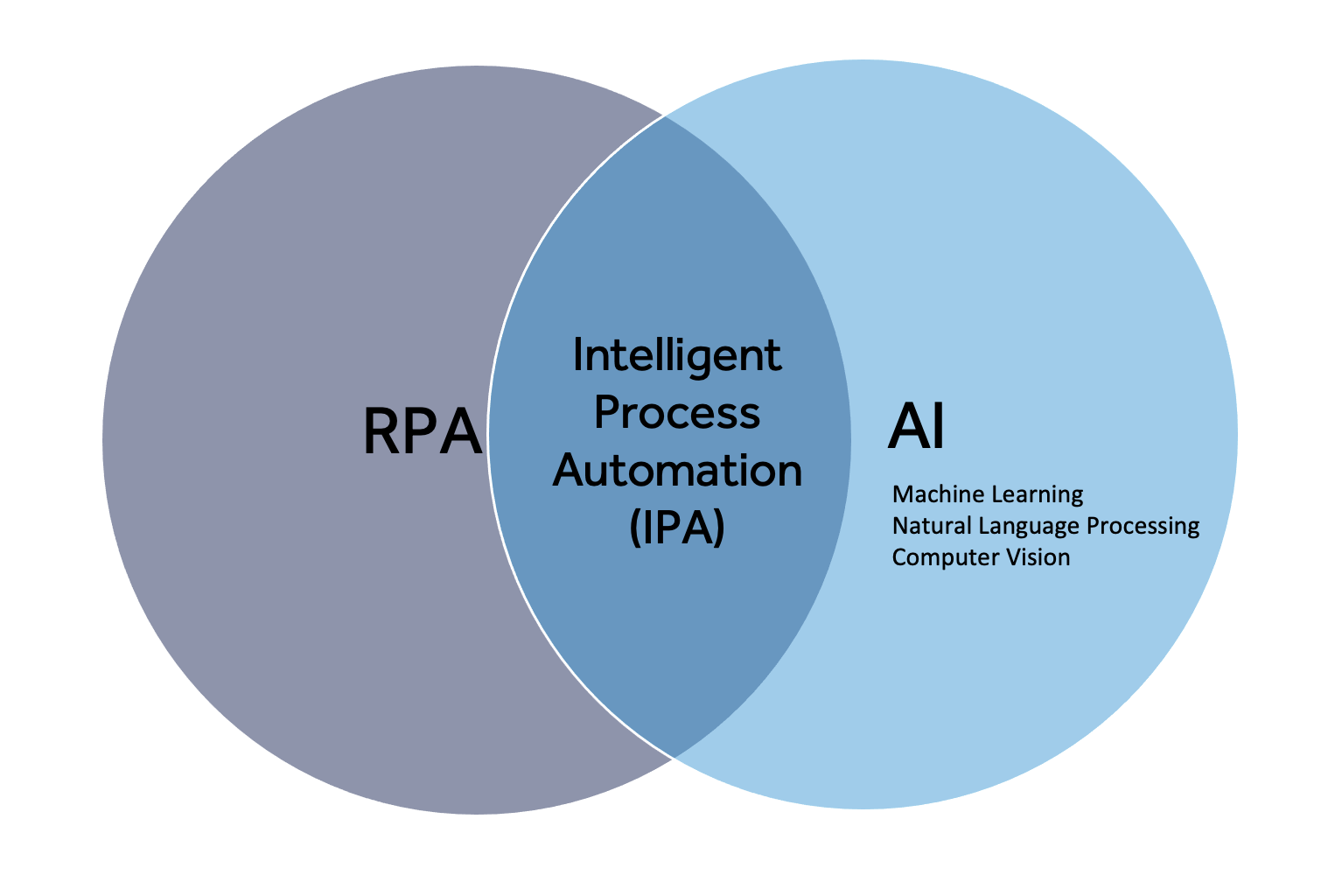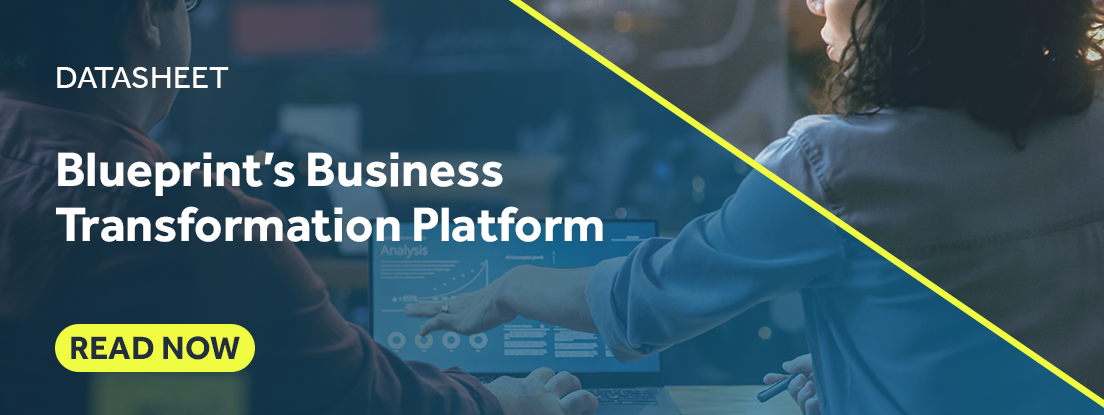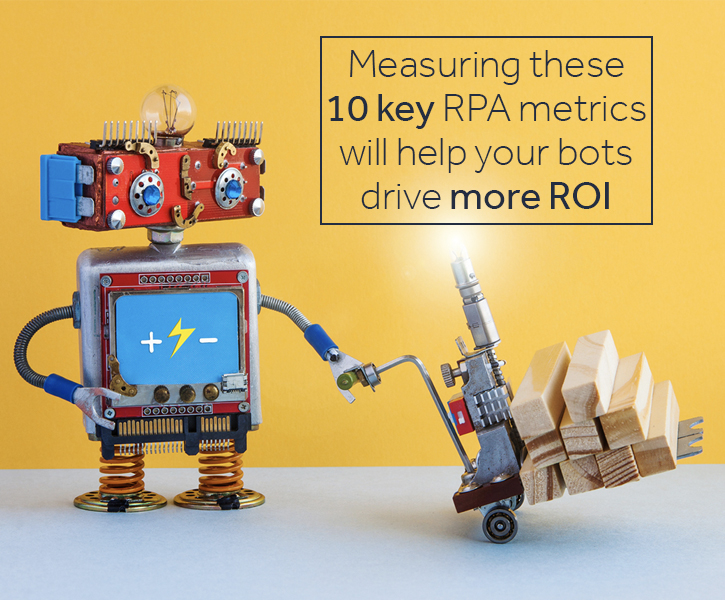What is Intelligent Process Automation (IPA)? All You Need to Know
Intelligent Process Automation (IPA) is part of the wave of technologies that enable organizations to reduce operational costs, improve efficiency, and deliver better employee and customer experiences. Born out of rule-based, task automation, Intelligent Process Automation is the next iteration of Robotic Process Automation (RPA) that continues to drive digital transformations forward.
What is Intelligent Process Automation (IPA)?
Intelligent Process Automation (IPA) is the combination of different technologies to automate more complete, end-to-end business processes. It is the evolution of basic, rules-based task automation into the management and automation of entire business processes made up of numerous tasks.
At its core, Intelligent Process Automation is the convergence of RPA and different Artificial Intelligence (AI) technologies to automate larger decision-based business processes that traditionally required an employee to intervene and execute.
The promise of Intelligent Process Automation (IPA) is rooted in its ability to elevate automation to another degree of complexity, creating even more efficiency, operational cost reduction, agility, and better experiences all around.
What Technologies Make Up Intelligent Process Automation?
At a high level, Intelligent Process Automation is essentially made up of two major market technologies: RPA and AI.
However, at a more granular level, there are specific Artificial Intelligence (AI) technologies that serve different purposes but are key components of IPA that enable the cognitive capabilities to automate more complex business processes.
Here's a rundown of how each technology makes up Intelligent Process Automation:
- Robotic Process Automation (RPA) – the automation of repetitive, rules-based business tasks.
- Artificial Intelligence (AI) – a combination of the technologies below that enables systems to perform tasks that require reason, judgment, and decision-making. Put simply, AI is a computer's ability to collect and extract information and apply logic to that data to make a decision.
- Machine Learning – An AI technology that can be defined as systems using data to improve those systems' performance without explicit instructions. A good example is discovering patterns in data and then using those patterns to make accurate predictions.
- Natural Language Processing (NLP) – An AI technology that interprets language and uses that information to make decisions and take an action. Common examples that use NLP are chatbots or virtual home assistants like Amazon's Echo or Google Home.
- Computer Vision – An AI technology that enables computers to parse and interpret images. There are examples in banking where computer vision is used to detect fraudulent banknotes to enhance security.

How is Intelligent Process Automation Different from Robotic Process Automation?
The difference between IPA and RPA is that while both deal with automation, RPA is simply one of the technologies that make up Intelligent Process Automation.
Robotic Process Automation is the automation of repetitive, rules-based tasks that present little variation. The processes selected for automation with RPA are typically smaller, decomposed processes of much larger, complex ones. For example, extracting information from invoices to input them into ERPs (enterprise resource planner) is a very common task that's automated using RPA. Still, it's only a small piece of the much larger flow to process invoices end-to-end.
Intelligent Process Automation (IPA) would automate much more of that process and remove the human intervention that introduces error and decreases execution speed. For example, machine learning can be used to review the invoice for compliance. Decision modeling software can be leveraged to automate the checks that managers or finance teams would perform manually, and so on.
What are the Benefits of Intelligent Process Automation?
According to Mckinsey, organizations in different industries that have experimented with Intelligent Process Automation have seen impressive returns that include:
- The automation of 50-70% of tasks translating into 25-35% annual run-rate cost efficiencies
- A 50-60% reduction in straight-through process time
- Return on investments in the triple-digit percentages
It's safe to say the main benefit of Intelligent Process Automation is a significant amplification of the returns RPA offers.
By combining the task automation RPA provides with AI technologies like machine learning, NLP, and computer vision to automate more complex, end-to-end business processes, the natural result is:
- Increased cost reduction than RPA alone can deliver
- Improved process output quality
- Greater efficiency
- Freeing up even more employee time to focus on strategic, mission-critical initiatives
What are Some Use Cases for Intelligent Process Automation?
Similar to RPA, Intelligent Process Automation can be applied to various industries, departments, and functions. Additionally, just like the early days of RPA, there are specific industries that are early adopters with common use cases already leveraging Intelligent Process Automation:
Financial Services
IPA is already being experimented with and applied in the Financial Services sector to build more precise credit models to reinforce lending processes, optimize trade execution and routing, and leverage analytics to understand client price sensitivity and preferences.
Another great example comes from BBVA (Banco Bilbao Vizcaya Argentaria) using computer vision to accelerate and enhance the onboarding process of new customers. Using this technology, prospects can open bank accounts by merely taking a selfie.
Insurance
Chatbots that have Natural Language Processing at their core are actively being used within insurance companies to automate and improve customer experiences. Specifically, they are used within an IPA framework to automate appointment scheduling and implement a self-service model for customers to select an insurance policy easily.
Healthcare
A big advantage of Intelligent Process Automation is visualizing data in real-time and bringing it to customers without manual intervention. As an article in Information Age points out, pharmaceutical companies and medical device manufacturers are using the greater visibility of data IPA affords to reinforce compliance by reducing fraud and errors while increasing security, safety, and accuracy.
The digitization and automation of document handling and regulatory monitoring are also helping the healthcare industry improve drug discovery and vaccine development.
Learn More: 7 Ways Healthcare is Using Task Capture to Drive Hyperautomation
What is Intelligent Process Automation's Role in the Future of Automation?
Intelligent Process Automation is the future of automation. While not quite at saturation, Robotic Process Automation is definitely out of the hype cycle and implemented widely.
Even though RPA growing pains have been abundant as organizations struggle with underwhelming ROI from burdensome RPA maintenance and support and a fragile digital workforce from poor automation design practices, those challenges will eventually be overcome to usher in IPA.
While integrating AI technologies with RPA to deliver Intelligent Process Automation is not quite ready for prime time yet, there is ample experimentation, and the early adopters are already seeing strong returns, which means it's only a matter of time before it becomes red hot.
Learn More: Top 7 Predictions for RPA in 2022
How Does Blueprint Enable Intelligent Process Automation at Scale?
The successful application of Intelligent Process Automation is dependent on synergy. By definition, artificial intelligence is combined with RPA to marry the task execution of bots with the intelligence and use of analytics that AI provides so complex, end-to-end business processes can be automated for bigger returns.
Therefore, a solution is needed to consolidate these tools; otherwise, a disconnected siloed IPA architecture will simply result in future failure.
That's where Blueprint comes in. Blueprint's Business Transformation Platform is the heart of your Intelligent Process Automation toolchain.
Delivering the most powerful automation design environment on the market where end-to-end automations that combine RPA and AI technologies can be designed, planned, and managed in what we call a Digital Blueprint.
Digital Blueprints contain everything you need to drive intelligent automation in your organization. From detailed process flows, functional and non-functional requirements, user stories, compliance, and regulatory requirements, to both functional and acceptance tests, among other critical information for successful solution delivery.
They can be used to drive any number of Intelligent Process Automation use cases such as RPA, the migration of legacy applications, custom development, or for commercial off-the-shelf technology implementations.
Download a copy of the Blueprint Business Transformation Platform datasheet and discover how Blueprint enables Intelligent Process Automation at scale.
Share this
Recent Stories

Intelligent Automation Solutions for Enterprise Processes

Intelligent Automation: A Guide to Everything it Provides




